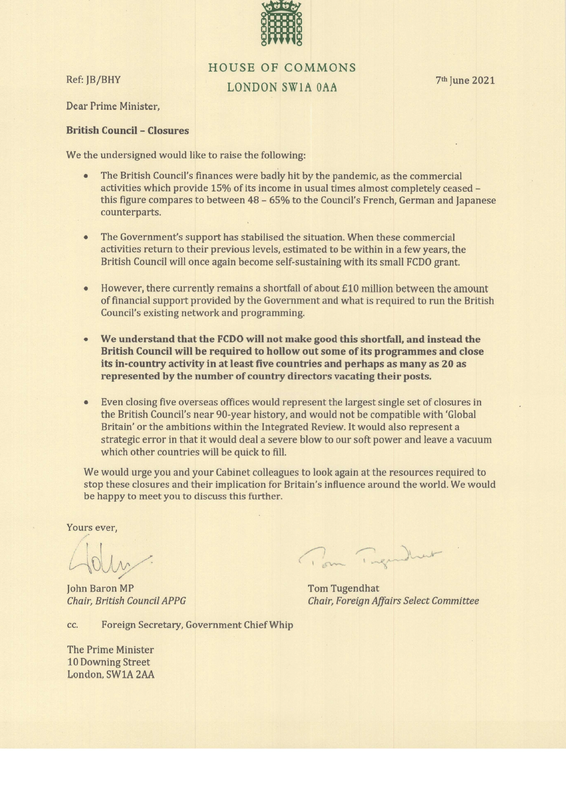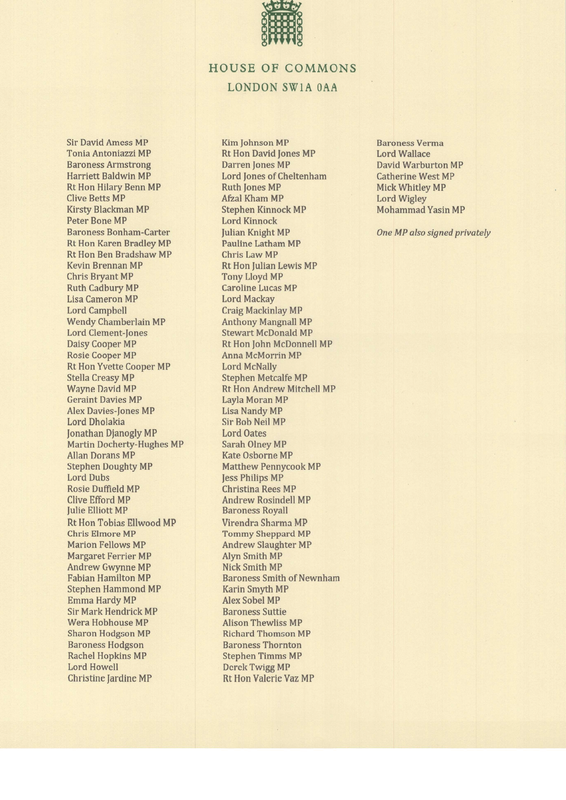|
On the 29th June, there will be an Estimates day debate on the British Council. The financial impact of the Covid-19 pandemic means that the British Council will be closing 20 offices around the world. Unfortunately, I won’t be able to take part in the debate, but I do feel strongly about these closures. The British Council is a crucial part of the UK’s presence overseas and a key soft power asset. In more than 100 countries, the British Council works to:
The British Council’s success is clearly shown by the way other countries have founded their own cultural relations bodies as a result, such as Germany’s Goethe-Institut, China’s Confucius Institute and Russia’s Russkiy Mir Foundation, amongst others. In the last ‘normal’ year before the pandemic, the British Council connected directly with an estimated 80 million people worldwide, and with 791 million overall through online work, broadcasts and publications. I believe the British Council provides excellent value for money for the British taxpayer. For comparatively little cost (only around 15% of the British Council’s funding comes from the UK Government), it acts as a huge springboard for the UK’s unofficial influence abroad – a 2015 study revealed that 55 world leaders were educated in British higher education establishments, many of whom will have had their studies in the UK facilitated by the organisation. It has helped to foster good relationships and trust between British people and people from other countries and is one of the main reasons that the UK is often referred to as a ‘soft power superpower’. Like many organisations around the world, the British Council suffered huge financial losses during the Covid-19 pandemic. 85% of the British Council’s income comes from its activities and in particular, teaching. Sadly, the global response to the pandemic led to the almost complete cessation of these commercial activities the British Council depends upon, as lockdowns and other restrictions prevented them from taking place. The British Council has received some extra funding from the UK Government, but there is a shortfall of around £10million. The Government will not close this gap, which means that the British Council must make up the costs elsewhere. Regrettably, we have had confirmation that 20 overseas offices will be closing. In its 90-year history, this is the largest single set of closures. Offices will be closing in Afghanistan, Australia, Belgium, Bosnia & Herzegovina, Canada, Chile, Croatia, Kosovo, Malta, Montenegro, Namibia, New Zealand, North Macedonia, Sierra Leone, Slovakia, Slovenia, South Sudan, Switzerland, United States of America, and Uruguay. Once these offices close, there will be considerable barriers in the way of them re-opening at a later stage. Earlier this month, over 100 MPs and Peers, including myself, co-signed a letter to the Prime Minister, asking for the Government to reconsider its position and make up the shortfall. Sadly, nothing has come of this. With all the talk of ‘Global Britain’, allowing these closures to take place is a huge error of judgement. It will undoubtedly weaken our position as a ‘soft power superpower’, at a time where we are supposed to be building and fostering new relationships outside of the EU. I believe that it’s a travesty that these closures have been forced upon the British Council. Government officials have been expressing good will about the Council throughout talks, but good will means nothing without the funding. I have no doubt that the British Council will continue to do excellent work going forwards. It’s a huge shame that this won’t be at a capacity that it could, and should, be. Further reading Find out more about the British Council here. Comments are closed.
|
News Archive
May 2024
Categories
All
|


